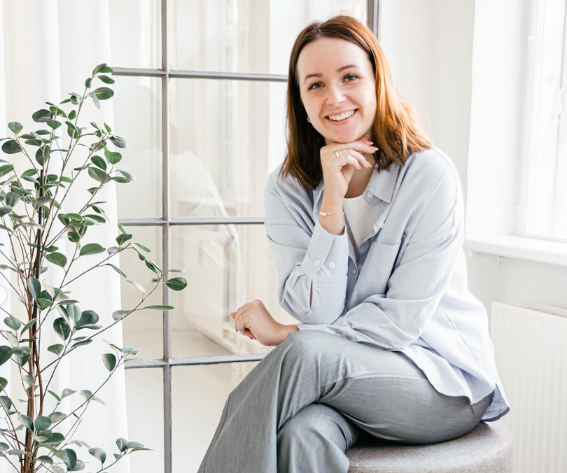It’s the third time we at TMFF sit down with Jacob Thomas Pilgaard, after one of his films wins our Film of the Month award. We’ve previously awarded his excellent Behold, Such Clown in July 2017, and then the haunting Incident at School back in August 2021. And now, he left the jury extremely impressed with The Deporatation of a Model Citizen.
JL: Jacob, Happy New Year! We’ve made quite a habit of chatting with you – and it’s your third Film of the Month win with us! Congrats!
JTP: Thanks! And wauw, three times – I think that’s the only time we have won so many times at the same festival. It’s highly appreciated! It’s one of the wonderful things about making films, that you get to have these kinds of relationships to people from various festivals all over the world. I really enjoy it.
JL: Could you give us a bit more context on the decision of Denmark (and Hungary) to regard Syria as safe in 2022?
JTP: Well, it’s quite a long story and a sort of side effect of Denmark being quite hardline regarding the whole debat about refugees. I think what drew me to this story was the sense of unjust. For some reason, our government considers some areas of Syria safe enough for people to go home. And what struck me was the quite random decisions being made. For instance, we had a case recently with a family of 6-7 people and only one of the young women suddenly had to go home, despite her going to college and speaking fluent Danish ect. ect. So, she, and many like her, has done everything possible to integrate into the Danish Society, many of them wants to become doctors or nurses and then they get deported while the rest of the family gets to stay. Mostly because often the men are protected by certain laws and conventions. Meaning if they had fled from the military, we can’t deport them because they most likely will go to prison. Or be executed. But there are no laws protecting the girls and young women. That’s just wrong, you know. Especially, so you have the full picture, we have some Syrian men here who are hardcore criminals, murderers and such, and we can’t get rid of them due to them being protected. And in an attempt to get rid of these men, our government has made these very tough laws but then the young women are the ones being punished, so to speak.
JL: Aida, a well-integrated student, is forced away from her foster family, and taken to the airport by the police, to be flown back to Syria. What we can learn from her case?
JTP: We have had a lot of these cases. As mentioned before, it just seems so arbitrary. There’s no pattern. And you must fight hard to get the decision reversed. Usually it takes a lot of attention from the press before one gets to stay. And an exceptionally good lawyer.
JL: How will you be using the film for raising awareness on this very important topic?
JTP: Well, now that the festivals have started noticing the film, I definitely can sense a growing awareness from abroad. Many are quite surprised that we are actually deporting people. Also, at the first screening of “Deportation” a woman said at the Q & A that the film had in fact changed her opinion about refugees. She used to just regard them as “numbers in statistics or some nameless people you heard about in the news” but now she really understood and had become aware of the fact that they are actual real people, some of them being deported back to a certain death in Syria. I guess it goes to show that there’s so much going on right now, the Pandemic, the war in Ukraine, risings in China and Iran and so on, that at some point you just turn off mentally in order not to become insane or depressed.
JL: I remember that in Incident at School, you chose to not have any music – and this added to the perceived tension of the situation. In The Deportation of a Model Citizen, you often use silence as a narrative element – when Aida goes to her friend’s house, for instance – to great effect. Some of these silent scenes speak louder than words. What is the key for getting this to work?
JTP: Dumb luck? Naaj, I think I have used these past short films to figure out what works for me as a filmmaker. “Behold, Such Clown” had quite a lot of music being quite emotional. Then in “The Casting of an Innocent Woman” we opted mostly for sound design. In “Incident at School” we took everything away on purpose because we were quite sure it would ruin the sense of realisme it you had tried to force more emotions into the audience with some (predictable) sad violin music, you know? In “Deportation” I think everything kinda fell into place, really. To me it’s all about intuition really. If the acting is good enough you know, strong enough already, there’s no need for music. And also, I have learnt that the less music you use, the more of an impact it has when you finally use it and gives the audience the satisfaction of having some sort of emotionel climax. So, it’s about intuition and timing.
JL: And speaking of Aida – what a great performance by Thalita Beltrao Sorensen! Her range of emotions when it comes to coping with her unfair situation is very impressive – how happy are you with the final result?
JTP: I am very happy! She’s really wonderful and so talented. As with the music my casting process is really about intuition also. She’s quite young you know, and she has no formal training as an actor. I probably looked at 15 other young women for the part but none of them really felt…right. Then a friend recommended Thalita and the moment I met her I just knew she was the right one. I mean, within seconds, I just knew. It’s difficult to explain.
JL: What are you currently working on? Any new projects on the horizon?
JTP: Ohhh I have a lot going on. I am (still…) trying to get my first feature greenlighted and I have been working on developing a TV-series for quite some time now. So, fingers crossed 2023 will be a good year! And actually, we’re considering doing a sort of sequel to “Deportation” or a companion piece to be more precise. If we can raise the money we will probably do it!
JL: Thanks for sharing your thoughts, Jacob! Always a pleasure, and hoping to see more of your work in the near future!
JTP: Thank you! Always such a great experience being a part of your festival. If we do the sequel, I’m pretty sure you’ll get to see it:)









Leave a reply